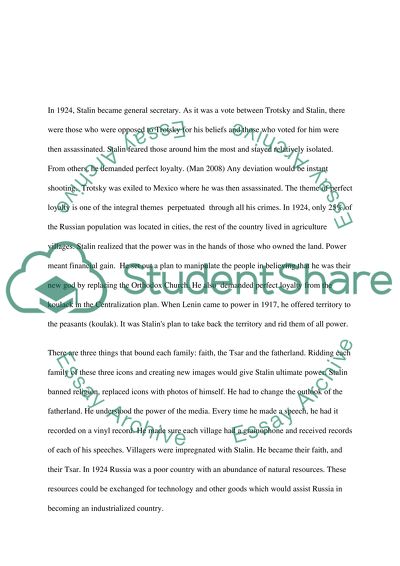Cite this document
(“Joseph Vissarionovich Stalin and his Crimes against Humanity Essay”, n.d.)
Retrieved from https://studentshare.org/environmental-studies/1414577-joseph-vissarionovich-stalin-and-his-crimes-against-humanity
Retrieved from https://studentshare.org/environmental-studies/1414577-joseph-vissarionovich-stalin-and-his-crimes-against-humanity
(Joseph Vissarionovich Stalin and His Crimes Against Humanity Essay)
https://studentshare.org/environmental-studies/1414577-joseph-vissarionovich-stalin-and-his-crimes-against-humanity.
https://studentshare.org/environmental-studies/1414577-joseph-vissarionovich-stalin-and-his-crimes-against-humanity.
“Joseph Vissarionovich Stalin and His Crimes Against Humanity Essay”, n.d. https://studentshare.org/environmental-studies/1414577-joseph-vissarionovich-stalin-and-his-crimes-against-humanity.


